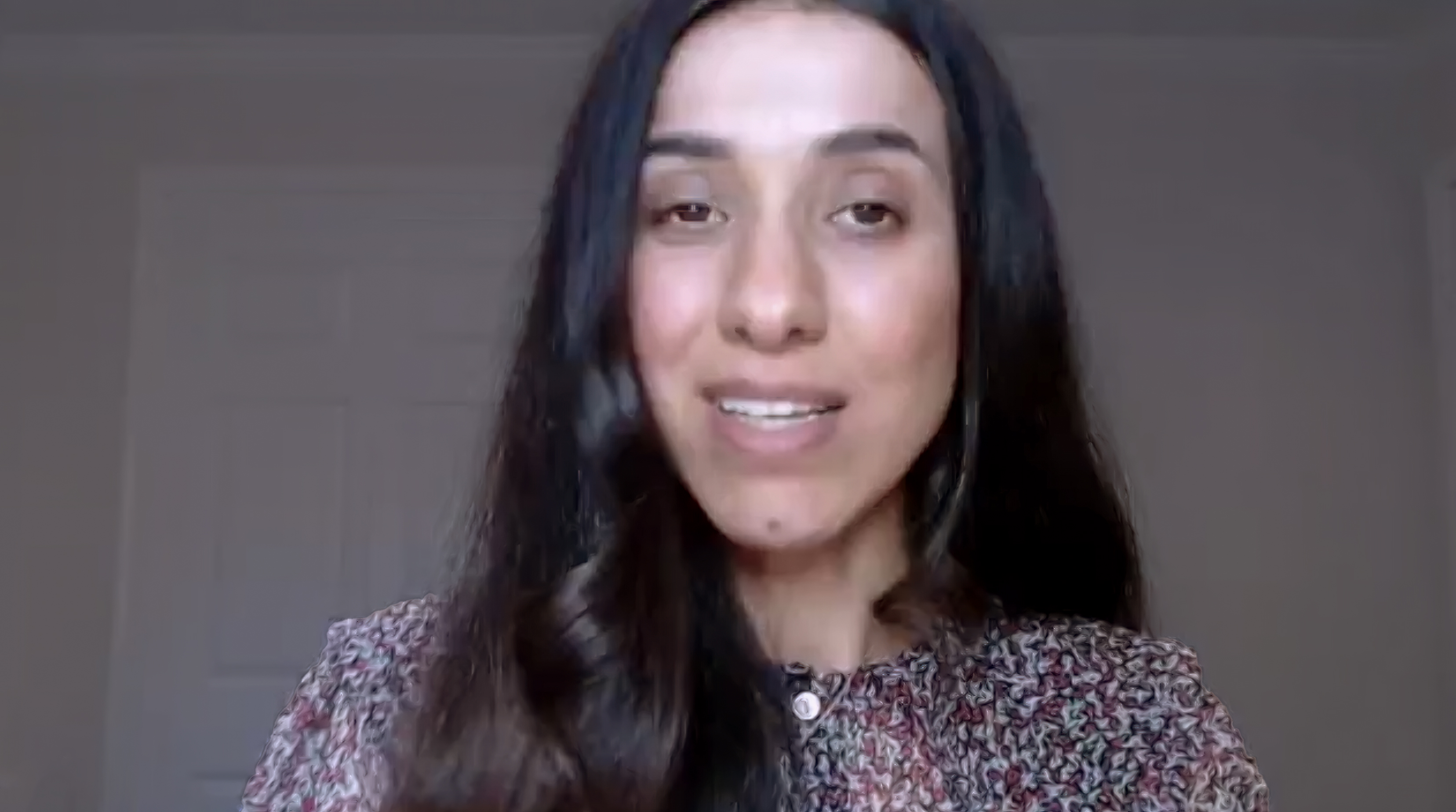2018 Nobel Peace Laureate and human rights activist Nadia Murad received the Alice and Clifford Spendlove Prize for Social Justice, Diplomacy and Tolerance in a virtual ceremony on Wednesday. She is the 14th recipient of the award since it was first presented at the UC Merced inauguration on September 5, 2005.
“Growing up in a rural town in Iraq, I could never have imagined awards ceremonies like this one,” Murad said. “But the values of social justice and tolerance that this award recognizes have always been at the center of my life.”
Murad, an advocate for survivors of genocide and sexual violence, spoke of the hardships she and her family endured in Iraq. She explained that her family was poor, but her mother worked hard on her own to provide for Murad and her siblings.
Because his older siblings worked on the family farm, Murad was able to receive an education. She said she will never forget what they sacrificed for her.
“I was determined to be successful not only in the classroom, but also to give the opportunity to the future,” she said. “My family’s examples have encouraged me to help others in any way I can.”
In 2014, his village of Kocho and many others in the Sinjar region were attacked by the Islamic State. ISIS militants have embarked on a campaign to ethnically cleanse the Yazidi ethno-religious minority in Iraq from existence because of their faith. In his New York Times bestselling memoir “The Last Girl: My Story of Captivity and My Fight Against ISIS,” Murad provides a heart-wrenching account of the genocide against the Yazidis and his imprisonment by ISIS.
About 400,000 Yazidis fled to the neighboring region of Kurdistan and tens of thousands took refuge atop Mount Sinjar, Murad said. They faced famine and extreme temperatures that claimed the lives of many people.
“The rest of us, unable to flee, were either killed or taken prisoner,” Murad said. “Over 6,000 women and children have been captured by ISIS, and over 2,800 are still missing today, including my nephew, niece and sister-in-law.”
Murad always knew she wanted to help people. Very young, she developed a passion for hairdressing and makeup. She dreamed of opening her own salon that would be accessible to women in her community, since the closest was a few hours outside of town.
“I wanted to use these skills to empower the women around me,” Murad said. “Hair and makeup wasn’t just about beauty; it was an excuse to take a break and connect with other women.”
A decade later, she admits, her plans have changed. But the goals remain the same. She has spoken out on behalf of her community since she escaped captivity.
“I still want to empower Yazidi women and work to make important services accessible in my country,” Murad said. “That’s why I founded the Nadia Initiative after the Yazidi genocide.
Nadia’s Initiative is a non-profit organization dedicated to rebuilding communities in crisis and advocating for survivors of sexual violence. His current work is focused on the sustainable redevelopment of the Yazidi homeland in Sinjar and the pursuit of holistic justice for survivors of ISIS’s atrocities.
Murad and her team have advocated for legislation that protects and promotes women’s rights, as well as drafted and advocated for the passage of resolutions to expand United Nations commitments to end sexual violence in conflicts. In 2016, she became the first United Nations Goodwill Ambassador for the Dignity of Survivors of Human Trafficking. Two years later, Murad won the Nobel Peace Prize with Dr Denis Mukwege and was named an advocate for the United Nations Sustainable Development Goals in 2019.

